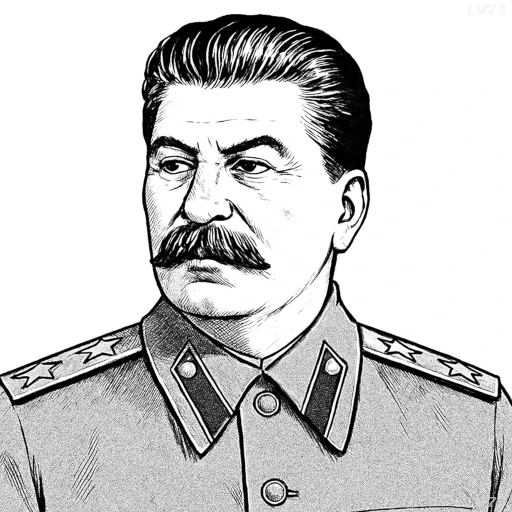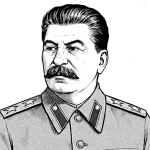“In the Soviet army it takes more courage to retreat than advance.”

- December 18, 1878 – March 5, 1953
- Born in Georgia
- Politician
table of contents
Quote
“In the Soviet army it takes more courage to retreat than advance.”
Explanation
This quote is particularly relevant in the context of Order No. 227, issued by Stalin on July 28, 1942, during the Great Patriotic War (the Soviet Union’s part in World War II). The order, commonly referred to as the “Not a Step Back” order, prohibited any retreat without explicit authorization, emphasizing that any soldier who retreated without orders would be considered a deserter and punished severely. The order embodied Stalin’s belief that the Soviet Army must stand its ground at all costs, even in the face of overwhelming opposition.
In the context of Stalin’s order, the quote reflects the harsh reality that retreating in the Soviet military was not only tactically difficult but also a highly dangerous act for soldiers. Soldiers who retreated without authorization risked execution, imprisonment, or being sent to the labor camps. Stalin’s directive meant that, despite dire situations on the frontlines, retreat could often be seen as a sign of weakness or failure. Soldiers were expected to demonstrate unwavering courage and resolve, even when strategic withdrawal might have been necessary for survival. In this sense, it required more courage to retreat because it was not just a matter of facing the enemy; it was a matter of facing the brutal consequences of disobeying orders or perceived cowardice, including execution.
Stalin’s order illustrated the totalitarian nature of his command: the state valued obedience above all else, even at the expense of strategic and military reasoning. It created an atmosphere where soldiers, knowing the severe penalties for retreating, were compelled to fight or die rather than consider strategic withdrawal. This mindset was part of the soviet war strategy that sought to impose unconditional loyalty to the state, even at the cost of individual lives, and relied heavily on fear and control as motivators.
In a broader context, the quote and the issuance of Order No. 227 serve as a powerful illustration of the devastating effects of authoritarian control in wartime. It highlights the extreme conditions faced by Soviet soldiers during World War II, where survival often meant total loyalty and submission to the state’s will, even when military logic might have dictated otherwise. Today, the quote and order remind us of the dangers of excessive control over military forces and the importance of moral responsibility and human rights, even in times of war. The focus on human lives and strategic thinking rather than blind loyalty and fear-driven obedience is crucial for ensuring the ethical conduct of any military force.
Would you like to share your impressions or related stories about this quote in the comments section?



